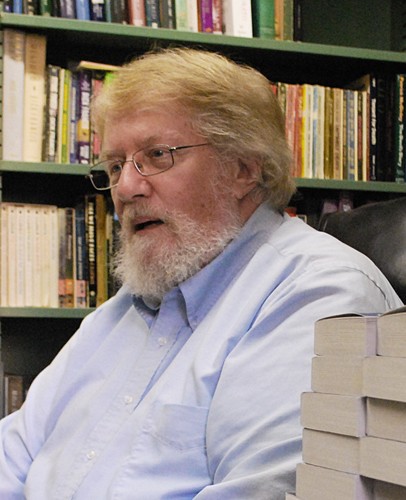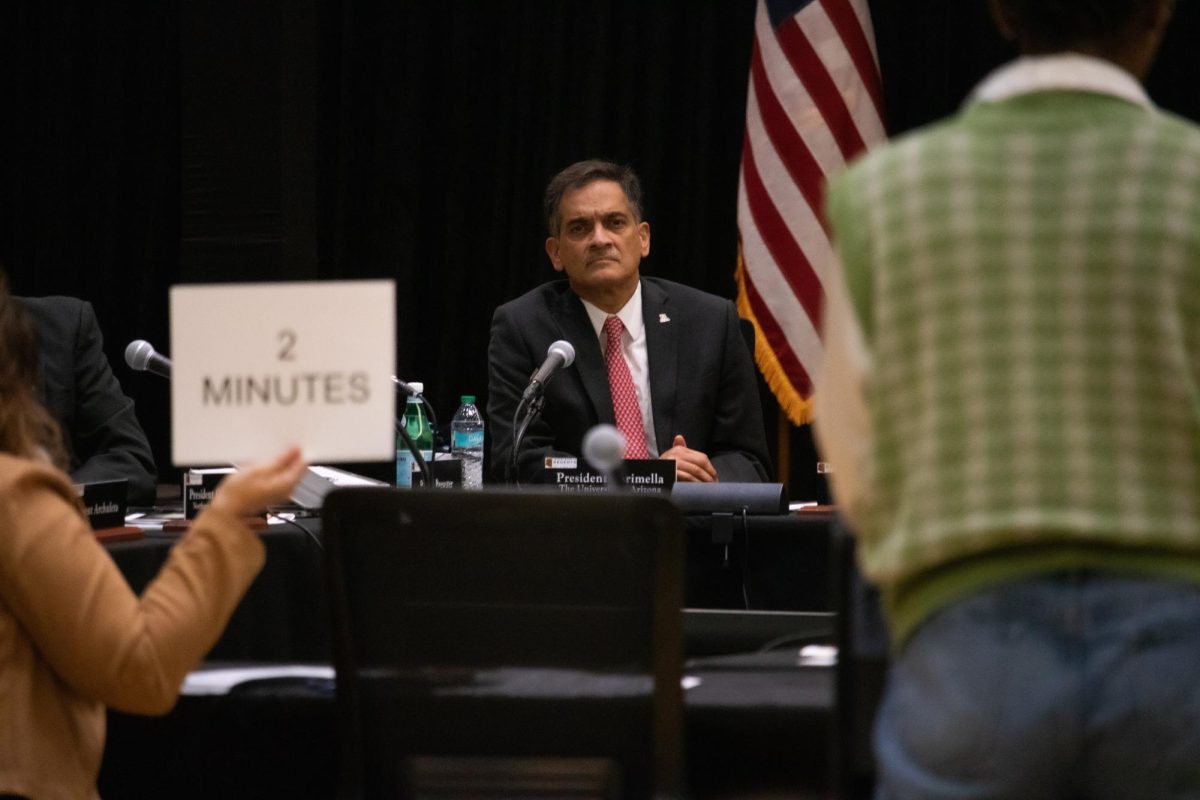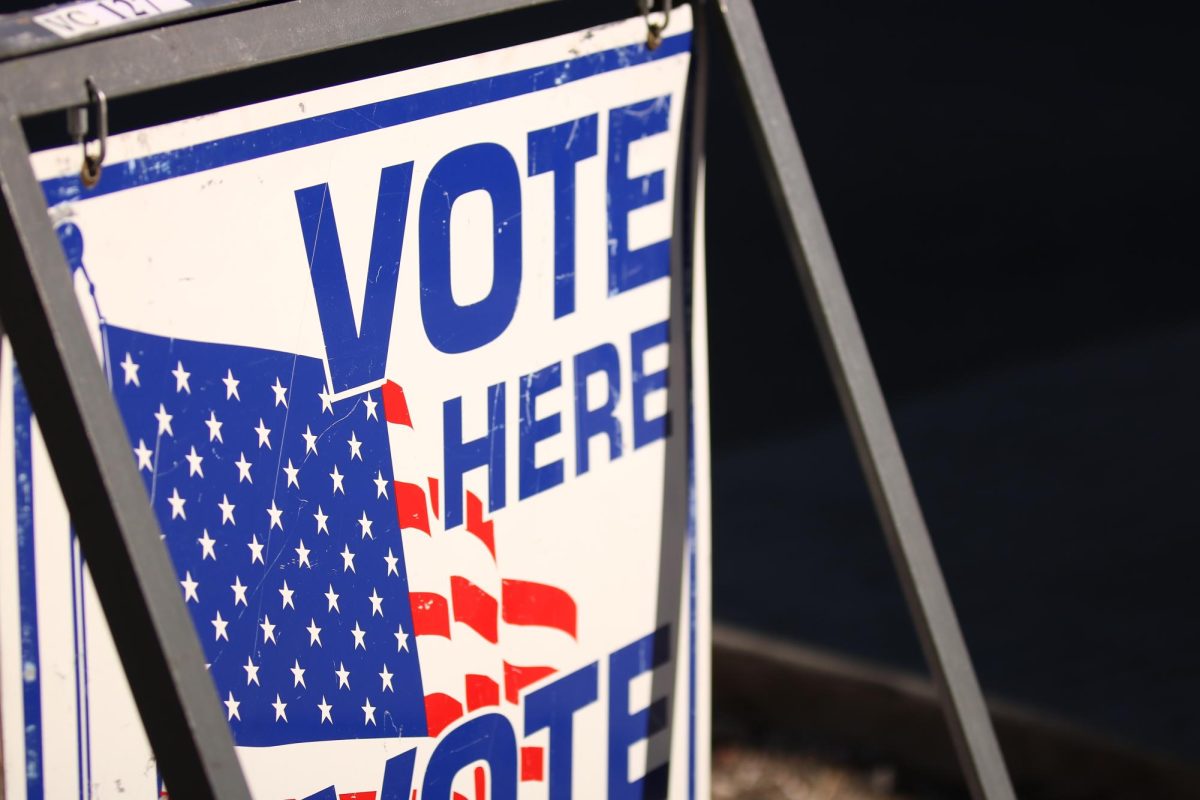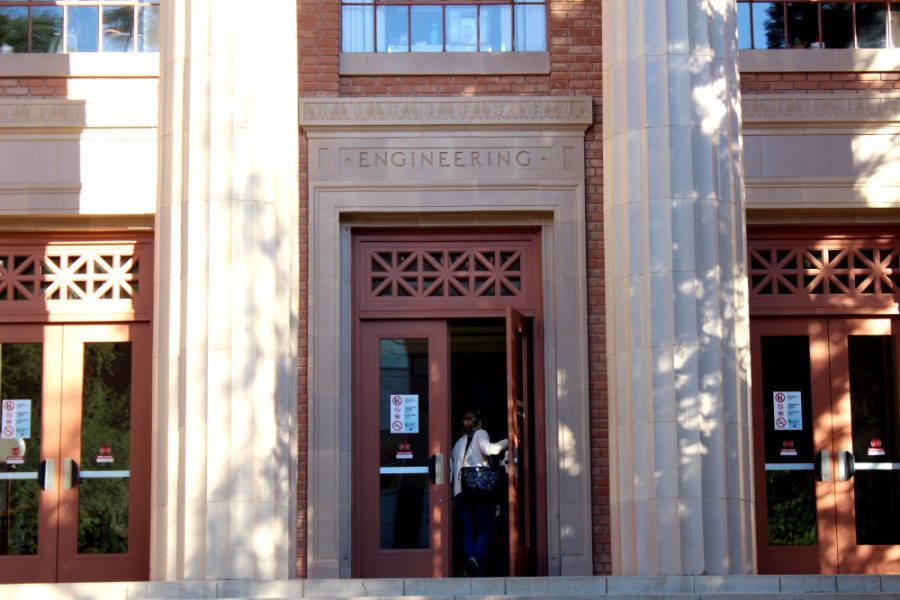This week kicks off UA’s third annual Humanities Week. During Humanities Week, UA faculty and guests put on events and presentations for both UA students and the Tucson community.
“”These community lectures are meant to introduce the community to the wide range of disciplines,”” said Pat Brooks, director of external affairs for the College of Humanities. “”The wide range of research is very exciting and very relevant to so many issue and problems,””
Brooks said Tucson is full of life-long learners who appreciate the chance to come and enjoy the humanities-centered events.
Last year they typically saw 60 to 90 people at an event, according to Brooks.
“”They (Tucson community members) think this is such a rich offering and a wonderful opportunity for Tucson,”” Brooks said.
The majority of the events are free.
As part of Humanities Week the Daily Wildcat surveyed UA Faculty involved with Humanities Week on their reading habits.
John Ulreich, professor of English
What are you currently reading?
“”‘Restored New Testament’ by Willis Barnstone. It’s the New Testament with some noncanonical gospels, and it’s an entirely new translation. I’m just reading through it, trying to get a sense of how much I like or don’t like the translation. I might use it in a class that I’m teaching.””
What is a book that has had an impact on you and why?
“”Read (John) Milton, read the Bible. Those are tremendous. Other books — the list is long and it’s hard to think of any that are especially important, except for one called ‘Saving the Appearances’ by Owen Barfield. You’ve probably heard of C.S. Lewis, you probably haven’t heard of Owen Barfield. They were very good friends. I got to know Barfield in this country when I was a very young teacher and I visited him a few times. This was actually after Lewis was dead. He was the wisest man I’ve ever known … he’s never going to be a bestseller, but that book had a profound influence on me, perhaps also because I met him. I never met Milton, I’m not sure I ever will. If there is a heaven, I’m not sure we’re both going there, and even if we did, there might be other people I’d want to meet first.””
Ken McAllister, professor of rhetoric:
What are you currently reading?
“”Because my research involves many disciplines, I tend to read a variety of books concurrently. In various locations around my house and various stages of consumption: Henning Nelms’ ‘Magic and Showmanship’; Mary Carruthers’ ‘The Craft of Thought: Meditation, Rhetoric, and the Making of Images (400-1200)’; Ander Monson’s ‘Vanishing Point’; Dave Tompkins’ ‘How to Wreck a Nice Beach: The Vocoder from World War II to Hip-Hop.'””
What is a book that has impacted you and why?
“”Lucretius’ ‘De rerum natura’ (On the Nature of Things). It was transformative to me, because when I read it, (I) was trying to integrate several passions of mine — poetry, technology and rhetoric. ‘De rerum natura’ — a thrilling and beautiful epic poem — manages this very feat. As I read it, I remember realizing that poetry, technology and rhetoric weren’t disparate disciplines but tightly interconnected ones. Epiphany!””
Donna Swaim, Senior Lecturer Emerita in religious studies:
What are you currently reading?
“”I am currently re-reading ‘The Black Swan’ by Nassim Taleb in preparation for my lecture at the Arizona Inn, Thursday, the 18th, during Humanities Week. That book and two essays by Michel de Montaigne will be much of the substance of that lecture.””
What is a book that has impacted you and why?
“”When I was in my late 20s, I read ‘Howards End’ by E.M. Forster while living in England with my husband and two small children. Forster’s characterization of the different ways human beings react to the same event was a powerful stimulus for personal self awareness, particularly important for that stage of my life.””
Adele Barker, professor of Russian and Slavic studies:
What are you currently reading?
“”I often read several books at once. Because I am interested in writing creative non-fiction, it’s important to me to read books that are written well. This summer I read Elizabeth Strout’s ‘Olive Kitteridge’ which amazed me by Strout’s ability to interweave plot and develop character. I’m also reading Annie Proulx’s ‘Close Range: Wyoming Stories,’ and am continually amazed at her use of language. Right now I’m rereading ‘To the Lighthouse’ by Virginia Woolf for a book club I am mentoring. Francine Prose’s ‘Reading Like a Writer’ and Tim O’Brien’s ‘Things They Carried,’ are also sitting on my bed table. I also love to read fiction and non-fiction by my colleagues. Recently I read Aurelie Sheehan’s wonderful ‘History Lesson for Girls’ and Fenton Johnson’s ‘Keeping Faith: A Skeptic’s Journey Among Christian and Buddhist Monks’ — a book to be savored.””
What is a book that has impacted you and why?
“”It’s impossible for me to say. There are lots of books that have touched me in different ways, and then when I go back to them years later, they touch me in completely different ways. I would say though that Homer’s ‘Odyssey’ and Camus’ ‘L’Etranger’ have been major works for me in my life as has Thomas Merton’s magisterial ‘The Seven Storey Mountain.'””









